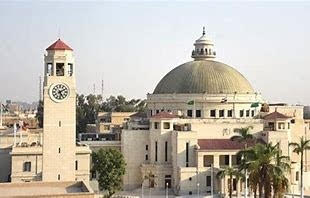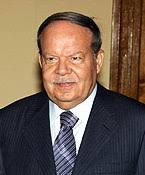When the international community speaks of Egypt, they speak of it as an “Arab country” whose people, the Egyptians, are part of the “Arab Nation”, implying that Egyptians are Arabs. Are they wrong? Yes and No.
For the international community, the “Arab region” or the “Arab World” is the North Africa – Middle East region that lies from Morocco in the west to the Arab Gulf in the east, and from Syria and Iraq in the north to Sudan in the south. Countries in this region are in Arabic termed “Arab countries” that belong to al- Umma al-Arabiya, literally the “Arab Nation”.
Umma translates into English as “Nation”. In Arabic, it denotes a concept of a group of people with common historical bonds that may be linguistic, religious or economic; and have common ideological, political, or economic goals.
In English, however, the Cambridge Dictionary defines “nation” as a large group of people of the same race who share the same language, traditions, and history, but who might not all live in one area. The Oxford Dictionary offers another meaning: A large body of people united by common descent, history, culture, or language, inhabiting a particular state or territory.
Now we encounter a significant problem emanating from the meaning of the same word in Arabic and in English. In Arabic, for instance, one can meaningfully say Ummat al-Islam, Nation of Islam, to denote all who believe in the Prophet Muhammad and the Qur’an, in any place on Earth. But in English, the term would represent a great misconception, since “nation” in English denotes people of the same race who originate from the same land, and have a common history and the same traditions.
With this in mind, is it incorrect to say Egyptians are Arabs, that they belong to the Arab Nation? Yes it is, if we take the English definition of “nation”, which prerequires the same race and origin for people to form a nation. Yet, no it isn’t if we adhere to the Arabic definition. So where does the predicament lie?
Over centuries, it had been established that Egyptians have in common with Arabs their religion, Islam, and their language, Arabic, so according to the Arabic definition, Egyptians are counted among the Arab nation. But Egyptians, like all inhabitants of the so-called Arab World except those in the Arabian Peninsula, speak their own brand of “Arabic” which is heavily underlaid with their original language, so much so that according to the modern definition of “language”, it qualifies as a language in its own right, complete with its own vocabulary and structure. Yet it is commonly termed “Arabic”.
As to the other bond claimed between Egyptians and Arabs, that of Islam being a common religion they all, or mostly all, share, it also requires scrutiny. Egypt is home to a sizable community of ethnic Egyptian Christians, the Copts, and also includes Jews, Baha’is, and a sprinkling of other religious groups. Out of Egypt came other religious beliefs such as the Druze and the Thelema. Thelema was developed in the early 1990s by the Englishman Aleister Crowley who claimed he received the Thelema revelation in the great pyramid.
If we extend the predicament of Egypt to other countries in the region, we find that each has its own cultural background and particularity. Egypt, Algeria, Syria, Iraq, Libya, Morocco include a wonderful ethnic variety of Amazigh, Syriac, Beja, Assyrian, Kurd, Armenian, Nubians, and others. In all these countries, the various ethnic groups coexist mostly in harmony. Their original languages have, over the centuries, intermingled with that of the Arabs who conquered them in the 7th and 8th centuries, making them part of the sprawling Arab World. But all these countries did not become an Arab race, neither did their cultures become copy of the Arab Peninsula mainly Bedouin culture. So when Egyptians and Arabs talk about nations in the region as Arab nations, they mean they mostly share the Islamic religion and Arabic language.
As early as the 14th century, Ibn Khaldun said that the concept of the “Arab Nation” was based on more or less common language and religion, but not race or history.
In view of all the above, It becomes obvious that the term Umma Arabiya ought to translate not into Arab Nation, but Arabiphone region. In my view, this would more accurately depict the truth of the situation on the ground.
Watani International
21 September 2019















